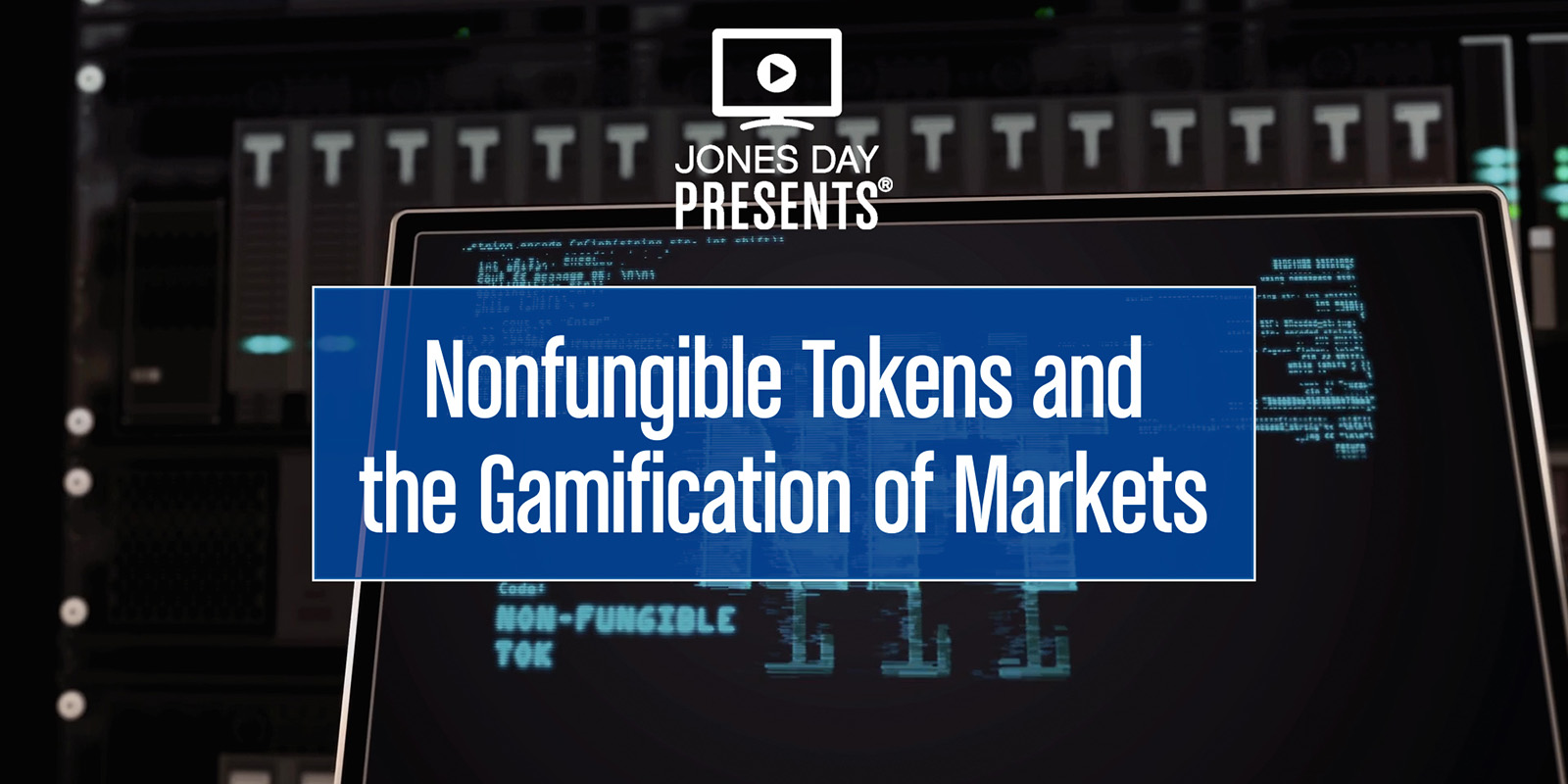
JONES DAY PRESENTS®: Nonfungible Tokens and the Gamification of Markets
Nonfungible tokens, or NFTs, continue to grow in popularity as artists, content developers, collectors, and other interested parties uncover new applications and opportunities. Jones Day partner Mark Rasmussen explains how NFTs work and describes some of the possible uses for this new technology.
Read the full transcript below:
Mark Rasmussen:
So an NFT stands for non-fungible token. It's a asset that is created and lives on a blockchain network and it refers to or points to another unique asset. So you think of the world around you, we're surrounded by non-fungible assets, whether it's a couch or the chair you're sitting in or a car you drive. Even if you get a similar model to the one you're in, doesn't mean that it's fungible one for another, one might be more used than another. And so we're very familiar with this concept of non-fungible assets. But it is kind of a strange-sounding word. The reason that it's so important in the digital realm is that digital assets can be copied over and over and over again and not lose any quality basically. And so you run into the problem of how do you approve that a digital asset is an original, that it's authentic, that it was created by the person who says he or she created it? NFT technology is what allows us to prove the authenticity of digital goods that otherwise could be copied.
NFT technology has been around really since about 2017 with the release of what's called ERC-721 standard, which is just a computer coding standard. But it kind of revolutionized what we can do with assets that live on a blockchain. With the release of any new technology, it takes a little while for it to pick up and gain steam. In early years, people were experimenting with it, and eventually they developed uses for it that really caught on that the market was attracted to. And so last year in 2021, NFTs really took off. We had a banner year with, by some estimates, $40 billion in sales. And so it's still early days for the technology. We're figuring out all the different use cases for it because so much of what we're seeing so far is in the art world or in the sports collectible world or entertainment collectible world. And that's a robust market and it's continuing to grow, but there's more beyond that that will emerge over time. There's lots of art projects that are tied to NFT technology and collectors are purchasing the NFTs and spending hundreds of thousands and millions of dollars for unique digital assets.
And it's good for artists and creators, content creators because they can cut out the middleman and earn more money for one thing. For another thing, because NFTs are computer code, you can encode them however you want. You can encode royalty payments that live on in perpetuity. And so an artist who creates a beautiful work of art isn't limited to getting one payment for that art. She can sell it to one person and that person can sell it to another and another in secondary sales. And each of those sales could deliver revenue in the form of royalty to the original artist.
That's really the use case that's taken off so far. And there are a lot of marketplaces that are out there where you can purchase these goods. There are some that are decentralized. There are some that are centralized or accept payment in dollars. And there's some that only accept payment in crypto. But where can it go from there? Well, we're already starting to see what's called NFT gamification where you integrate NFTs into video games, or you deliver real-world experiences for those who hold NFTs or who collect them. You could see NFT technology being used to replace the tickets that we use to get into sports events or other music events, and perhaps it's a more efficient use case for that. People are already experimenting and using NFTs in metaverses and using that to signify ownership of virtual land in a metaverse or virtual goods in a metaverse.
To view all of our JONES DAY PRESENTS® Digital Assets videos, please click on the playlist below.


